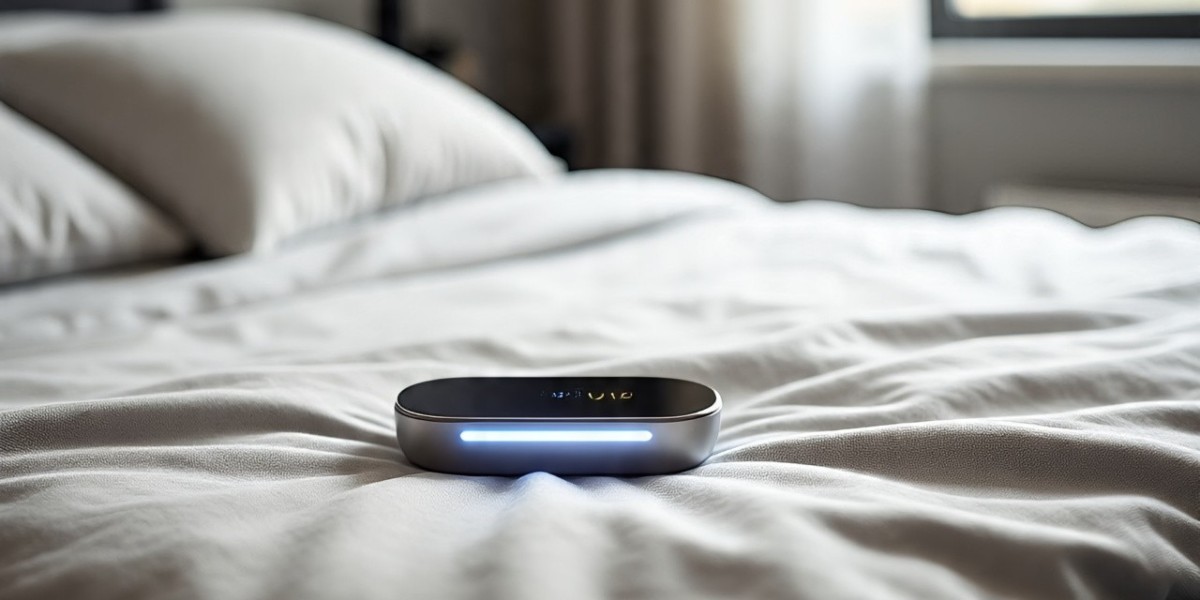Sleep plays a vital role in maintaining our physical and mental health. In today’s fast-paced lifestyle, many people struggle to get proper sleep due to stress, long working hours, or unhealthy habits. Poor sleep can affect focus, mood, and even overall well-being. To solve this problem, technology has given us an amazing solution called the Sleep Tracking Device.
A sleep tracking device is a smart gadget that helps you monitor your sleeping habits and understand how well you rest each night. It uses advanced sensors to track your sleep patterns, heart rate, breathing, and movements during sleep. By collecting and analyzing this data, it gives you useful insights that can help you improve your sleep quality naturally.
In this article, we’ll talk about everything related to sleep tracking devices — how they work, their benefits, types, tips to use them effectively, and how to choose the right one. Let’s explore how a simple device can help you enjoy peaceful and refreshing sleep every night.
What Is a Sleep Tracking Device?
A sleep tracking device is a modern tool designed to monitor and record your sleep activity. It collects information about how long you sleep, when you wake up, and how much time you spend in each stage of sleep — light, deep, and REM. The main goal of this device is to help you understand your sleep quality and identify factors that might be affecting it.
Most sleep tracking devices come in wearable forms like smartwatches, fitness bands, or smart rings. Some are non-wearable and can be placed under your mattress or pillow. These devices connect to your smartphone through an app that displays your sleep data in easy-to-read charts and graphs.
For example, if your device shows that you spend too much time in light sleep and not enough in deep sleep, you’ll know that your body isn’t resting fully. You can then make changes to your habits — like sleeping earlier, reducing caffeine, or keeping your room dark — to improve your sleep cycle.
In simple words, a sleep tracking device acts like your personal sleep assistant. It helps you understand your body better and gives you the knowledge needed to rest deeply every night.
How Does a Sleep Tracking Device Work?
A sleep tracking device works by using advanced sensors and technology to monitor your body’s activity while you sleep. It collects several types of information that reflect how your body behaves during rest. Here’s how it works in an easy-to-understand way:
Movement Tracking: The device uses motion sensors (accelerometers) to detect how much you move at night. Less movement means deeper sleep, while frequent movements suggest light sleep or waking up.
Heart Rate Monitoring: Most devices measure your heart rate continuously throughout the night. Your heart rate slows during deep sleep and becomes irregular during REM sleep.
Breathing and Oxygen Levels: Some sleep tracking devices also track your breathing patterns and oxygen levels to detect any irregularities.
Environmental Tracking: Advanced models can even monitor room temperature, light, and noise levels to see how your surroundings affect your sleep.
All the data collected is processed through algorithms to create a detailed sleep report. The app will show your sleep duration, sleep quality score, and the percentage of time you spent in each stage of sleep.
Over time, your sleep tracking device learns your routine and provides personalized tips to help you sleep better — such as when to go to bed or how to improve your bedroom environment.
Main Benefits of Sleep Tracking Devices
Using a sleep tracking device can be life-changing for those who struggle with poor sleep or fatigue. Here are some major benefits you can enjoy by using one:
Better Sleep Awareness: Most people don’t know how well or how long they sleep. The device gives you a clear picture of your sleep quality.
Improved Sleep Quality: By understanding your sleep patterns, you can make lifestyle changes that lead to deeper and more restful sleep.
Stress Management: Better sleep helps lower stress levels and improves mental clarity.
Early Health Detection: Devices that track heart rate and oxygen levels can help identify potential health problems like sleep apnea.
Personalized Advice: Most apps connected to the sleep tracking device give tips based on your data to help you sleep better.
Motivation for Healthy Habits: Seeing your sleep score improve motivates you to follow better bedtime routines.
A sleep tracking device not only helps you sleep better but also improves your overall health. With regular use, you’ll wake up feeling more energetic, focused, and ready to take on the day.
Types of Sleep Tracking Devices Available
There are different types of sleep tracking devices available today, each designed to suit different needs and comfort levels. Here are the main types you can choose from:
Wearable Devices:
These are the most common types, such as smartwatches, fitness bands, and smart rings. They track your movement, heart rate, and oxygen levels while you sleep.Non-Wearable Devices:
These are placed under your mattress or pillow. They monitor your sleep through body movement and breathing without being worn. Perfect for people who don’t like wearing gadgets to bed.Smart Rings:
These are lightweight and easy to wear on your finger. They track sleep, heart rate, and body temperature.Smart Home Devices:
Some advanced systems like smart speakers or bedside sensors can monitor your sleep environment, including noise and light levels.
Each sleep tracking device type has its pros and cons. Wearables provide more detailed information, while non-wearables are more comfortable. The best choice depends on your personal comfort and lifestyle.
No matter which type you choose, all sleep tracking devices aim to help you understand and improve your sleep in a smart and easy way.
How to Choose the Best Sleep Tracking Device
Choosing the right sleep tracking device can feel confusing because there are so many options. Here are a few simple things to keep in mind before buying one:
Accuracy: Choose a device that uses reliable sensors and has positive user reviews.
Comfort: If you don’t like wearing gadgets, go for a non-wearable tracker.
Battery Life: Some devices last only a day, while others work for weeks. Pick one that matches your lifestyle.
Features: Decide which features you really need — heart rate tracking, oxygen levels, noise monitoring, etc.
App Interface: The connected app should be easy to use and show clear sleep data.
Price: Expensive doesn’t always mean better. Many budget-friendly sleep tracking devices offer excellent features.
Once you buy your device, wear or place it correctly, sync it with your phone, and use it regularly. The more consistent you are, the more accurate and useful your sleep data will be.
The best sleep tracking device is the one that suits your comfort, needs, and budget — helping you build better sleeping habits every day.
Tips to Get Better Sleep with Your Device
A sleep tracking device can only guide you — real improvement happens when you follow healthy habits. Here are a few easy tips to make the most of your device:
Use It Consistently: Wear or place it every night to get accurate data.
Check Your Data Regularly: Look at your reports daily to notice patterns and make changes.
Follow Recommendations: Use the app’s suggestions to improve your bedtime routine.
Maintain a Sleep Schedule: Go to bed and wake up at the same time every day.
Avoid Caffeine and Screens Before Bed: Both can interfere with deep sleep.
Keep Your Room Comfortable: Maintain a dark, quiet, and cool environment.
A sleep tracking device helps you understand what affects your sleep, but your habits make the real difference. Combine the data insights with a healthy lifestyle, and you’ll enjoy peaceful nights and energetic mornings.
Conclusion
In today’s technology-driven world, where our minds are always busy, getting quality sleep is essential for staying healthy and happy. A sleep tracking device acts as a smart partner that helps you take control of your sleep. It gives you clear information about how long and how well you sleep, so you can make small but effective changes in your routine.
By using a sleep tracking device regularly, you can enjoy better sleep, improved focus, and a healthier lifestyle. It’s a simple investment in your well-being that offers long-lasting benefits. Whether you prefer a smartwatch, smart ring, or bed sensor, the goal is the same — to help you sleep deeply and wake up refreshed.
Good sleep is the foundation of a good life, and a sleep tracking device can guide you toward achieving it naturally.
Frequently Asked Questions (FAQs)
Q1: What is a sleep tracking device used for?
A sleep tracking device monitors your sleep duration, quality, and different sleep stages to help you improve your rest.
Q2: Are sleep tracking devices accurate?
Most modern devices are highly accurate, though minor variations can occur depending on the sensors used.
Q3: Can a sleep tracking device detect sleep apnea?
Some advanced devices can identify irregular breathing patterns that may suggest sleep apnea, but you should consult a doctor for confirmation.



